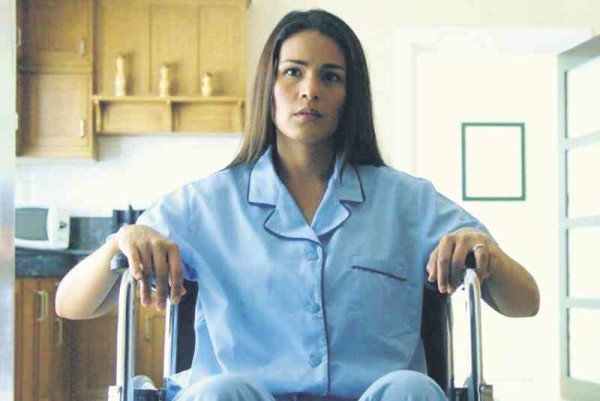Art imitates life
Bliss,” Jerrold Tarog’s gritty Osaka fest-winning psychological thriller, draws a fine line between fact and fiction.
We see what makes the film’s graphic depiction of violence and sexual abuse polarizing but, taken in its proper context, it never feels gratuitous. After all, rape, emotional abuse and decapitation are never a pretty sight—and it’s impossible to “prettify” their horrifying repercussions.
So, we were pleased to learn that the controversial film, produced by EA Rocha and Fernando Ortigas—the “forward-thinking” tandem behind “Heneral Luna,” “Sunday Beauty Queen,” “I’m Drunk, I Love You” and “English Only, Please”—is being shown in our cineplexes without cuts. Would that other cinema-loving producers could be as bold, inventive and daring!
Although his execution feels more heavy-handed than it should be, Tarog strings together the production’s disparate elements with claustrophobic relish and unrelenting conviction. As a result, “Bliss” feels more disturbing than scary.
You sometimes catch yourself wondering if you were watching the grim fate that has befallen recuperating actress Jane Ciego (Osaka best actress winner Iza Calzado) after a mishap on the set of the horror film she topbills—or the bleak situation her similarly beleaguered screen character, Abigail (Calzado), is facing.
Article continues after this advertisementAfter the accident, Jane finds herself wheelchair-bound and stuck in a “haunted house” with only abusive nurse Lilibeth (the exceptional Adrienne Vergara, in a career-making turn), who’s been hired by Jane’s feckless husband Carlo (TJ Trinidad), to keep her company. In the movie Jane is making, Ian Veneracion portrays her husband, Joshua.
Article continues after this advertisementDon’t get us wrong: With its noirish appeal, the movie will find favor with genre fanatics who are partial to cerebral mind-benders that examine the lives of their flawed protagonists and the murky morality of the grim worlds they inhabit. So, there’s more than enough quality to offset its occasionally bum-numbing narrative style.
The production also benefits from the lovely and thespically lissome Calzado, who displays more than just dramatic perspicacity and insight—yup, she also shows some skin.
Conveying strength, stress and sorrow, the expressive actress invests her complex character with well-limned self-doubt and steely resolve.
But it is “Bliss’” film-within-a-film storytelling conceit that makes Tarog’s otherwise fascinating production less satisfying.
The shuttling—or shuffling—of focus and perspectives is nothing short of intriguing but, at the same time, confusing as heck.
So, Tarog’s novel directorial tack eventually overstays its welcome, because it distracts and detracts more than it clarifies.
